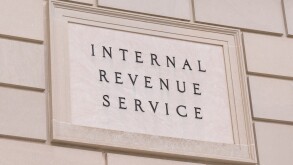
Richard Woolhouse: The majority of businesses pay the right amount of tax, and for the small minority which do not, times are getting tougher, and rightly so.
In some cases the tax system is lagging behind commercial reality, particularly around the taxation of the digital economy and transfer pricing. As the Prime Minister highlights, the UK needs to work together with other countries, including the G8, to change the rules where appropriate, so that they are fit for the global business age.
The amount of tax paid should always be determined by the rule of law and not public opinion.
ITR: Do you think corporations need to pay attention to their reputation when designing their tax policies?
RW: Tax and tax planningis now a board-level issue and companies are thinking about their reputationwhen it comes to tax matters.
ITR: Common arguments in defence of corporate tax avoidance are that it’s legal and it doesn’t take into account a company’s total tax contribution to society. Do you believe these are sufficient to placate the public and the media?
RW: The CBI is against highly abusive avoidance schemes which serve no commercial purpose other than the minimisation of tax.
It’s right that the broader discussion of businesses’ contribution to society includes a conversation about investment, jobs and skills, but this is absolutely not an excuse for abusive avoidance. At the same time, companies can do more to explain their tax affairs to the public.
ITR: What government measures do you think would be fair and effective to ensure companies pay the right amount of tax?
RW: Some of the recent high profile examples have arisen because of developments in the digital economy where it is often difficult to value particular business activities in a simple way.
In many cases, the tax system is lagging commercial reality and what is needed is multinational action coordinated by the OECD to update the rules on how business activities are taxed internationally. In particular, the current OECD project on transfer pricing and intangibles will lay down a much more robust framework.
ITR: Is it possible for governments to act alone to close unintended loopholes in international tax law, or is international cooperation the only option?
RW: Business nowadays is often borderless so international cooperation is much more effective.
ITR: There is a lot of disagreement over what a “fair share of tax” means. What is your personal view on this?
RW: The concept of morality is difficult because it is open to different interpretations. A truly effective tax system must be driven by rule of law, which needs to keep pace with how businesses operate.
ITR: Sainsbury’s Chief Executive Justin King said that companies wishing to trade in the UK should contribute back to society through corporation tax. Would you agree with his comments?
Multinational investors in the UK should be taxed on the profits relating to activities undertaken here. Looking at the data more than 90% of all UK corporation tax is paid by multinational corporations and this is split roughly 50:50 between inbounds and UK based companies.










